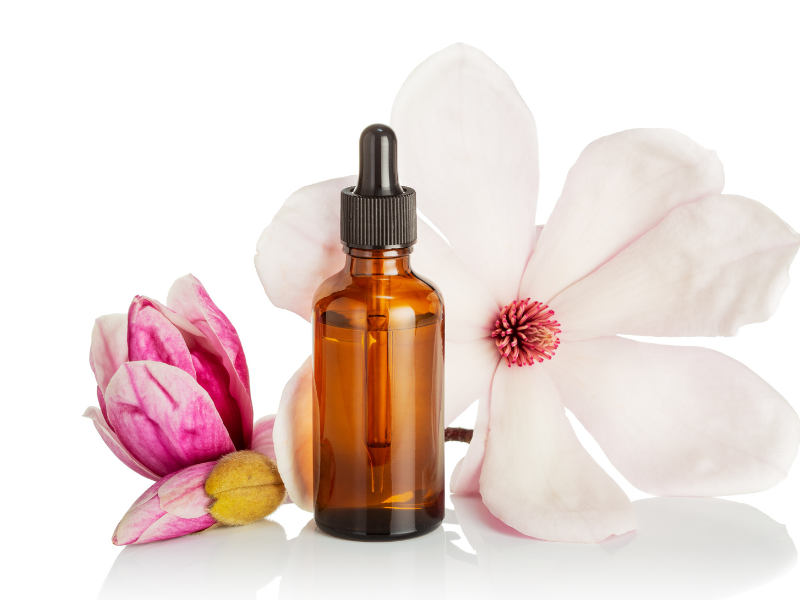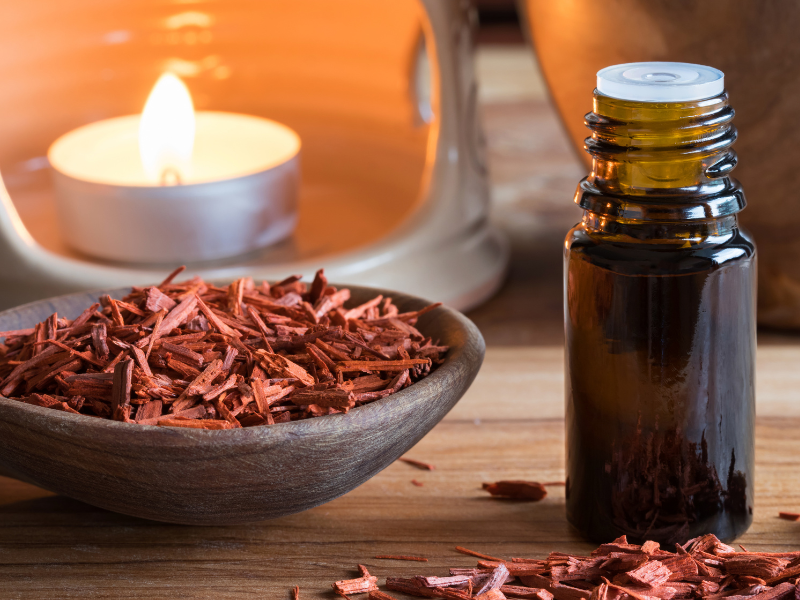But not everyone likes to reach for pharmaceuticals when there are natural options to consider, which is why more and more people are turning to essential oils for their cough-combating fix.
Both a wet cough and dry cough can be extremely uncomfortable for people of any age, but there are some essential oils that contain potent natural properties capable of soothing, relieving and reducing respiratory distress.
So what essential oil is good for cough relief? Well, there are several. Essential oils are as diverse as nature itself, and there are plenty of different types you can use to help fight back against coughs and a scratchy throat of various causes.
Let’s take a look at how you can safely use Volant’s essential oils for coughs and which oils have the healing properties your body needs.
How essential oils can help you fight against coughs

Essential oils can be absorbed by the body in a number of different ways: topically, or through the skin; internally, through the mouth and digestive system; and aromatically, through the olfactory system.
The olfactory system is the most popular entry point for essential oils, mostly because it feels natural to sniff and inhale their fragrance via aromatherapy. However, inhaling essential oils is also one of the most effective ways to receive their many benefits. Using a stylish high quality diffuser for this purpose is an excellent idea as it creates the ideal balance of oil in the air.
When you inhale an essential oil, the particles filter into your respiratory system, nervous system, bloodstream and amygdala (the emotional centre of the brain). Whatever natural properties that particular essential oil possesses can then begin to take effect.
Take lavender for example. This is an oil that has scientifically proven sleep-inducing and anti-anxiety effects. By inhaling this oil, you allow for fast transmission of its soothing compounds that take effect within a few minutes to an hour.
When it comes to soothing coughs, you can use oils that enhance breathing, soothe throat scratchiness and promote strong immunity to expedite the healing process. If the cough is related to a viral infection, you can also use an essential oil for cough relief that has antimicrobial properties.
Let’s take a look at what essential oil is good for cough relief, as well as essential oils that help with dry cough relief as opposed to a wet cough. We’ll also explore which oils can protect the lungs, help prevent issues that cause coughing and provide immune support for prevention and recovery.
Essential oils for coughs

These days, we have the luxury of having access to all kinds of essential oils without needing to gather or distill them ourselves. If you are experiencing a respiratory illness that causes wet or dry coughs, you can use these essential oils to help soothe soreness, reduce inflammation, break up mucus, enhance breathing and attack infections.
- Eucalyptus
- Peppermint
- Cinnamon
- Rosemary
- Tangerine
- Tea Tree
You can use single essential oils or create a blend that is specifically tailored to your health needs. Even if you just have one of these essential oils, they can provide natural support that feels good, smells good and provides some relief at the same time.
Let’s take a look at how to use these various oils for coughs.
Essential oils for respiratory support
Eucalyptus essential oil

Eucalyptus essential oil Originally cultivated in Australia, eucalyptus leaves are still the primary food source of koala bears. But this herbaceous tree leaf is packed with powerful natural compounds that humans have been using for respiratory support for centuries.
Volant’s pure, organic Eucalyptus Essential Oil has a cooling, menthol-like fragrance that uplifts the senses. The chemical compounds found in eucalyptus oil, such as 1,8-cineole (aka eucalyptol), break up mucus membranes, both reducing the amount of mucus that builds up in the lungs and loosening it for more effective elimination.
In a 2020 review on eucalyptus oil for respiratory support, the authors discussed its anti-inflammatory, antibacterial, antiviral, bronchodilatory and mucolytic properties. They suggested that eucalyptus is helpful for those suffering from asthma, bronchitis and COPD.
A 2013 study also determined that eucalyptus essential oil can reduce pain and inflammation, making it good for not only respiratory support but also for pain relief.
Peppermint essential oil

If you or your children are struggling to breathe due to a tight cough, our refreshing, uplifting Peppermint Essential Oil can deliver the breathing support you need. Not just that, but it can also help bring relief to nasal congestion or sinusitis.
Menthol is one of the principal active compounds in peppermint oil. Several decades ago, it was discovered that smelling menthol triggers cold receptors in the airway, which is partly responsible for the sensation of easier breathing. Recently, a study in COPD patients found that smelling menthol significantly reduced physical and psychological breathing effort, breathing discomfort, anxiety and fear during restricted breathing times.
Another 2013 study found that peppermint essential oil helps relax the bronchial muscles, making it easier to breathe. It is for this reason that athletes and singers sometimes inhale peppermint or menthol before a big performance.
Inhaling both menthol and eucalyptus together has also proven to reduce coughing during a cough challenge in healthy subjects. And using menthol and eucalyptus together topically may help with decongestion and improve sleep quality.





